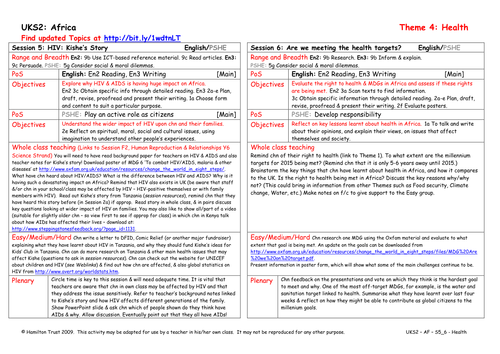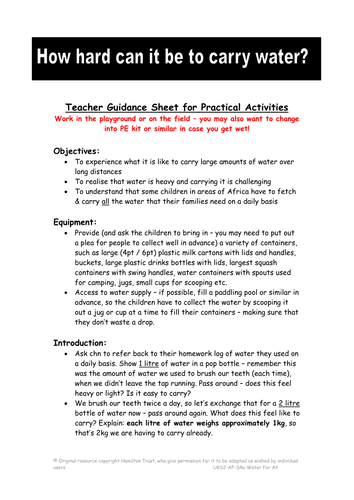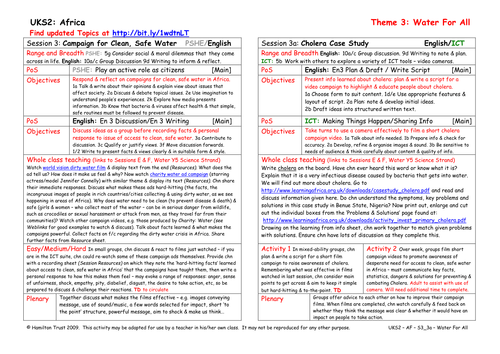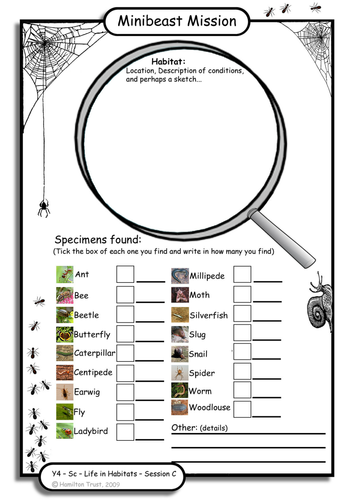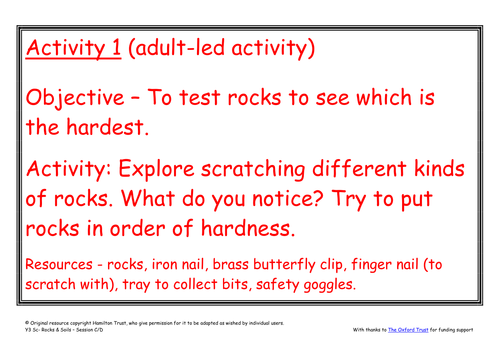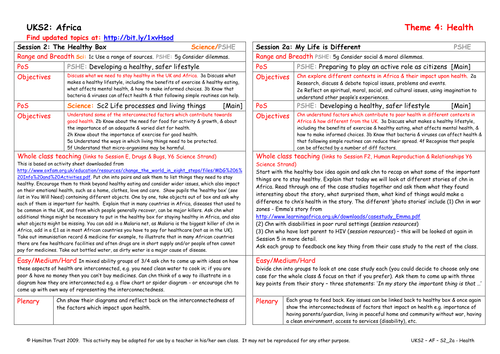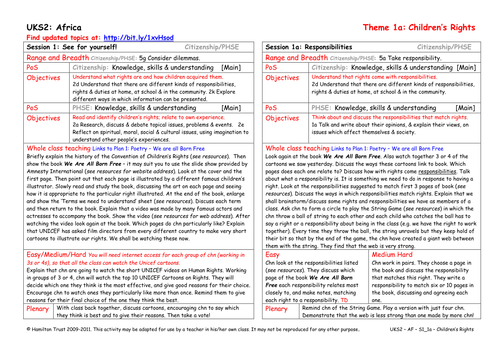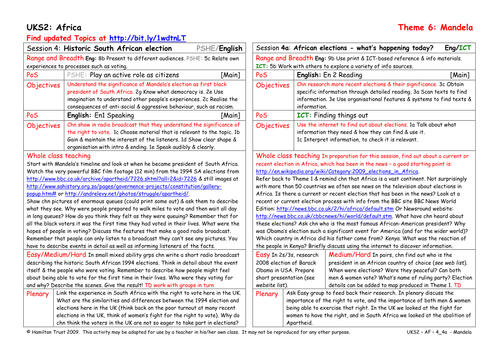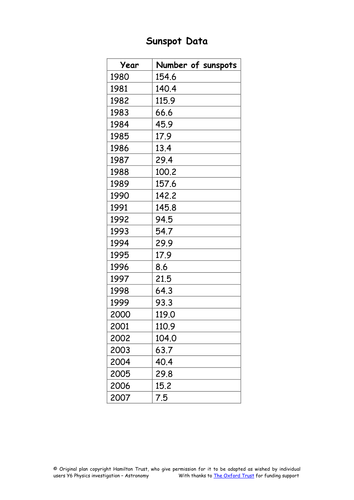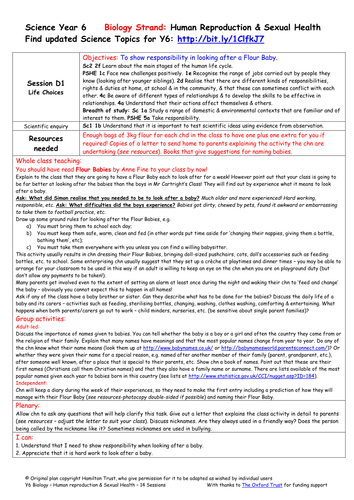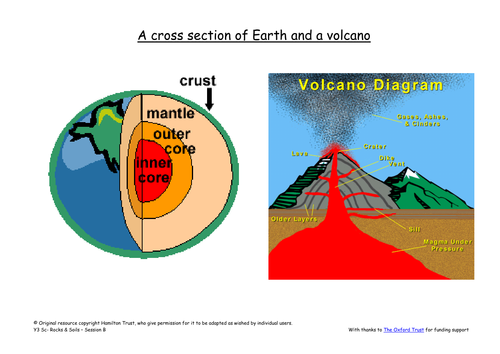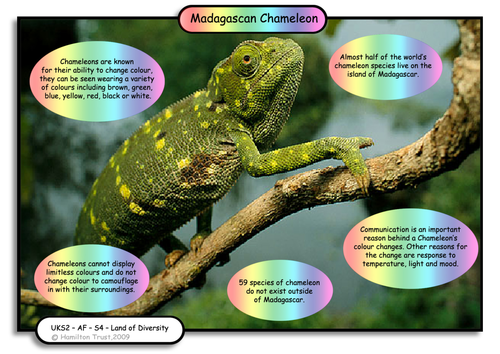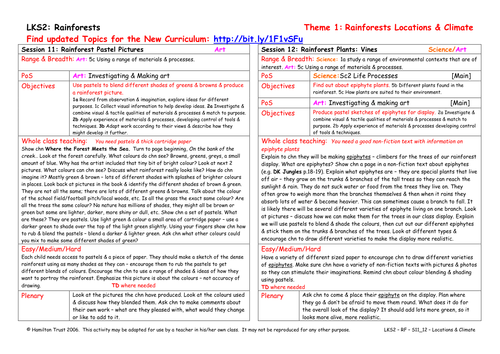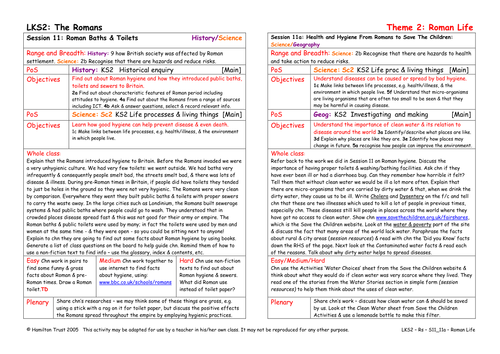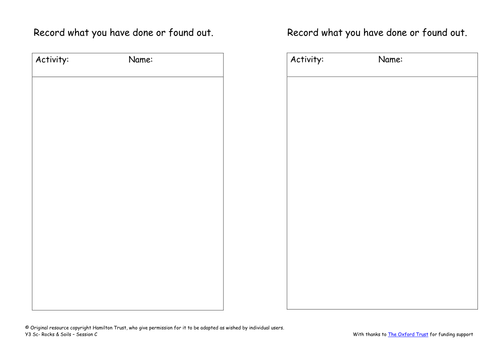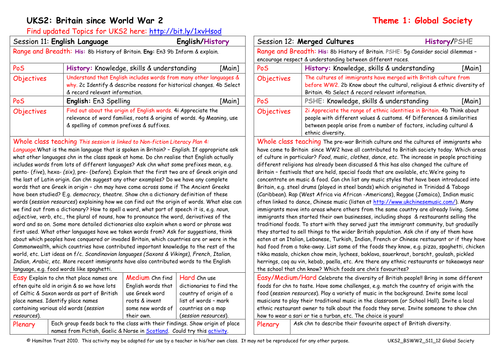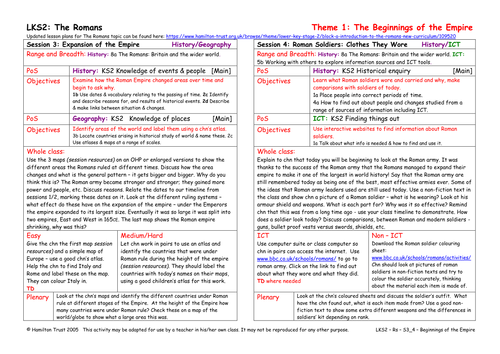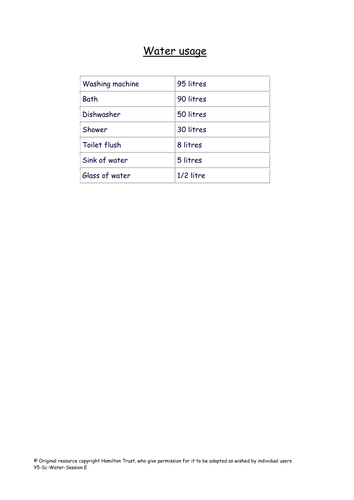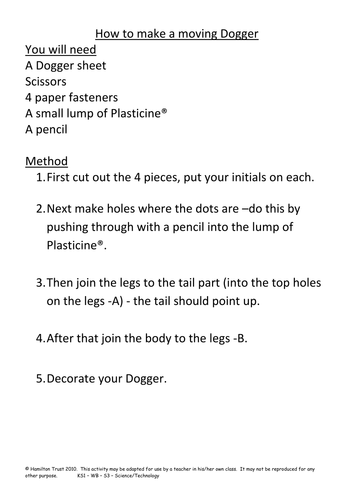
397Uploads
10041k+Views
11644k+Downloads
Cross-curricular topics

Are we meeting the health targets?
Reflect back on ‘Right to health and MDGs. Investigate how far children think their rights and the MDGs related to health are being met. Present a MDG in an interesting way.
Suitable for years 5 and 6.

Can You Carry It?
How hard can it be to carry water? Children find out the facts and discuss images of different ways of carrying water before trying themselves. Through activities on the playground children experience that water is heavy and challenging to carry over distances.
Suitable for years 5 and 6.

Cholera Case Study
Through following a case study in Benue State, Nigeria, children learn about cholera. They plan and write a script for a video campaign to highlight and educate people about cholera, finally taking turns to use a camera to film their short cholera campaign videos.
Suitable for years 5 and 6.

Field trip!
Organise a field trip in the school grounds, in the local environment or further afield. Children observe and/or collect minibeasts and record them and any evidence (including plants) to indicate why the habitat is suitable for those organisms.
Suitable for Year 4 pupils.

Explore rocks further
Take part in more practical workshop activities including separating sand and stones by sieving, using ICT to research rocks, looking up vocabulary in dictionaries, sorting and naming rocks and testing the effect of vinegar on rocks.
Suitable for Y3 pupils.

The Healthy Box
Explore with Children the basis needs to ensure good health, and how they are interconnected using the concept of a ‘healthy box’.
Suitable for years 5 and 6.

Responsibilities
Discuss how the cartoons seen yesterday link to the book We Are All Born Free. Discuss how with rights come responsibilities and what responsibility means. Play the String Game using rights and responsibilities and discover how strong a net can be made.
Suitable for years 5 and 6.

African Elections
Africa is a large continent with over 50 countries – usually there is an election going on somewhere! Children research a current/recent election in Africa and/or the election of Barack Obama as President of USA. Discuss the significance of Obama’s election.
Suitable for years 5 and 6.

The sun
Show children that white light is actually a mixture of colours and that the Sun provides heat! Investigate sunspots using shadows and the rotation of the earth around its axis. Finally draw a graph of the number of sunspots a year and identify a pattern.
Suitable for Y6 pupils.

Life choices
Session 1 - Think about all the different relationships that children have/will have with other people, leading to a discussion about marriage. Research marriage customs in different cultures. Children return to timelines and predict hopes and expectations for their future lives.
Session 2 - Think about all the different relationships that children have / will have with other people, leading to a discussion about marriage. Research marriage customs in different cultures. Children return to timelines and predict hopes and expectations for their future lives.
Suitable for Y6 pupils.

Under our feet!
Explore what is under our feet. Draw and label a cross section of the Earth. Discover the three main rock types. Test the permeability of different kinds of rocks. Find out information from websites.
Suitable for Y3 pupils.

Madagascan Chameleon
Using Madagascan Chameleons as a model, show children how they can focus upon particularly interesting aspects of their chosen creature. They will need to write an explanation of this feature. Model this using the chameleon’s camouflage.
Suitable for years 5 and 6.

Rainforest Plants - Vines
Epiphytes are small plants that live not in the soil but happily up on the branches of trees in the layers of the rainforest. In this session children find out more and create pastel epiphytes for the Rainforest display.
Suitable for years 3 and 4.

From Romans To Save The Children
Children continue work on health and hygiene in relation to clean water and the diseases caused/transmitted by dirty water. Using the Save the Children website, children discover the ways in which this issue is being tackled in different parts of the world.
Suitable for years 3 and 4.

Rock investigations
Learn some key vocabulary about rocks. Take part in a workshop offering a range of activities including testing hardness of rocks, sorting rocks, finding information, drawing rocks and thinking about how pebbles and sand are formed.
Suitable for Y3 pupils.

English Language
The English language contains words from many different languages. Children investigate old Saxon and Celtic words used in British place names, Greek prefixes and word roots that are used in English words and words that have been introduced from other languages.

Expansion of the Empire
Children look at how the Roman Empire expanded over a period of 400 years and then began to diminish in extent. They relate this to the systems of government identified in Session 2. They map the Roman Empire on today’s world map, identifying countries.
Suitable for years 3 and 4.

Family Food
Consider where the food that we eat comes from. Grown at home, locally or in another country? Discuss food miles. Who does the shopping, cooking, washing up? Where does the water come from? Cook a meal/dish and write the recipe to send to your link school. Suitable for years 5 and 6.

Water in everyday life
Remind children how important water is to all living organisms. Look at how little of the water present on earth is fresh and therefore drinkable.
Children investigate how animals and plants adapt to arid conditions and create posters to encourage us to save water.
Suitable for Y5 pupils.

Make a Moving Dogger
Practise cutting and joining skills by making a moving Dogger. This session links to English Plan 2 Stories with familiar settings. Learn how to cut well, make a hole in cardboard and construct moving joins using paper fasteners.

